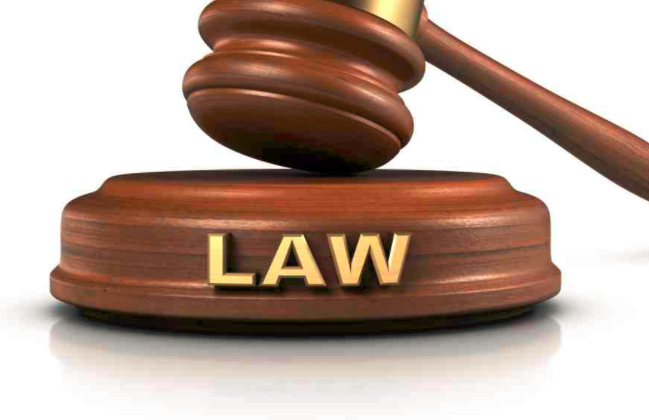Atty. Mel Sta. Maria is the Dean of the Far Eastern University Institute of Law and Professor at the Ateneo de Manila School of Law.
Never have we seen many controversies going on simultaneously until now in the Duterte administration. To name a few: Chief Justice Sereno’s impeachment, Ombudswoman Conchita Morales’ refusal to obey an unlawful executive order, Rappler’s impending closure, extrajudicial killings, Senator De Lima’s incarceration, the West Philippine Sea case, the Vera files expose on the alleged millions-of-peso-deposits allegedly of the Dutertes, the imposition of Martial Law in Mindanao, charter change, the strained relationship with Kuwait, increasing inflation, the rice shortage, and the MRT and jeepney transport problem.
A number of young lawyers ask me : which is the ethical and moral side in all these? I say to them that the complexity may be more apparent than real. Distilling the essence of the issues, the right position may not really be difficult to determine.
For example, in the impeachment case of Chief Justice Maria Lourdes Sereno, she has been deprived by politicians in the House of Representatives’ of her right to cross-examine, through counsel, the witnesses against her. Hearsay testimonies have been plentiful. “Fishing expeditions’ appear to continue. Accusations, such as her allegedly “void” appointment, not asserted in the original complaint are suddenly being invoked. Any lawyer worth his salt knows these developments are highly substantially and procedurally questionable. And because the Chief Justice is involved, the judiciary’s independence is affected.
Also, the President ordered a deputy ombudsman’s suspension under an authority previously declared unconstitutional by the Supreme Court. Ombudswoman Conchita Carpio-Morales defied the order. It is basic to the point of being elementary that an unconstitutional directive has no legal force. How can the basis for suspension be a provision of law which, in effect, is already non-existent?
And then the case of the Securities and Exchange Commission’s closure of Rappler. The SEC defined “mass media” using ordinary legislations, including an irrelevant tobacco-law. This is improper. To settle an ambiguity in the constitution, the understanding of the people who ratified it in 1987 must be the guide. “Mass media” , in 1987, only included newspapers, radio and television.
Internet news delivery was not contemplated at that time simply because, then, such platform did not exist. Ensnaring Rappler within a prohibition on the constitution’s 100-percent-Filipino-ownership-and-control-of-mass-media requirement anchored on a faulty interpretation is simply wrong. The closure smacks of subsequent punishment threatening press freedom, no matter how indirect it may be. Siding with the freedom of the press must be the default mode in case of uncertainty.
Extrajudicial-killings (EJK) have caught the attention of the International Criminal Court, such that its chief prosecutor announced that the preliminary examination of the alleged thousands of killings in the Philippines shall be undertaken. Also “Oplan Tokhang” has been relaunched by the government. These developments again revive apprehensions of possible government-sponsored exterminations of young lives. A lawyer must always adhere to the constitutional mandate that human being must not be deprived of life arbitrarily. In the Philippines, no person, agency, or institution can order the death of an individual.
Portentously, core democratic principles such as observance of the constitution, independence of the judiciary, freedom of the press, and the prohibition against deprivation of life, liberty and property without due process of law are threatened if not already violated.
All these involve the law and, perforce, the lawyers. Considering their solemn oath promising that “without any mental reservation or purpose”, they must only obey “the legal orders of the duly constituted authorities”, “support the Constitution”, “do no falsehood”, and will not “promote or sue any groundless, false, unlawful suit, or give aid nor consent to the same,” siding with the underdogs, such as Chief Justice Ma. Lourdes Sereno, Ombudswoman Conchita Carpio-Morales, Rappler, families of EJK victims is obviously the right thing to do. In law, this is “res ipsa loquitur” (the thing/situation speaks for itself.)
In 2008, Pakistani lawyers spearheaded protests against their government. When Pakistan President Pervez Musharaff declared martial law, suspended Pakistan’s Constitution, and removed Chief Justice Muhammed Chaudhry, they started a movement that figured significantly in Musharaff’s eventual resignation. In his June 2008 article “The Lawyers’ Crusade”, James Traub of the New York Times said: “Pakistan’s lawyers were not in fact, courting martyrdom, but their willingness to stand up for their convictions, and to suffer for them, has transformed their country’s legal and political landscape.”
Much like what happened in Pakistan, a Philippine “lawyers’ crusade” may be in the offing also evocative of the campaign of Jose “Pepe” Diokno, Jovito Salonga, Joker Arroyo, and Soc Rodrigo against the brutal Marcos regime. More than any professional , lawyers have the needed skills and the wherewithal to work for the preservation of our liberties and the revival of decency in our government.
The aim need not be to unceremoniously topple President Duterte for he has been duly elected by the people. The point is to make known that lawyers shall strongly and loudly make objections to the constitution’s violation or manipulation by any government officials including the President and his allies in Congress and the Supreme Court.
And these objections may involve protest-rallies pursuant to the constitutional right to peaceably assemble and petition the government for redress of grievance. And that redress of grievance includes the uncompromising demand for immediate resignations.
Filipinos are by nature patient, but when the final spark is lit emotionally galvanizing them to collectively act, they will do so. When it happens, lawyers must be in the forefront. That is their onus during these troubling times.

